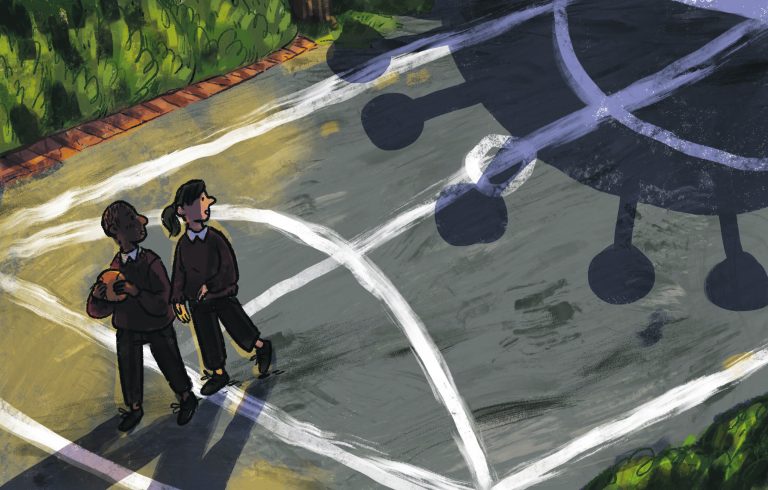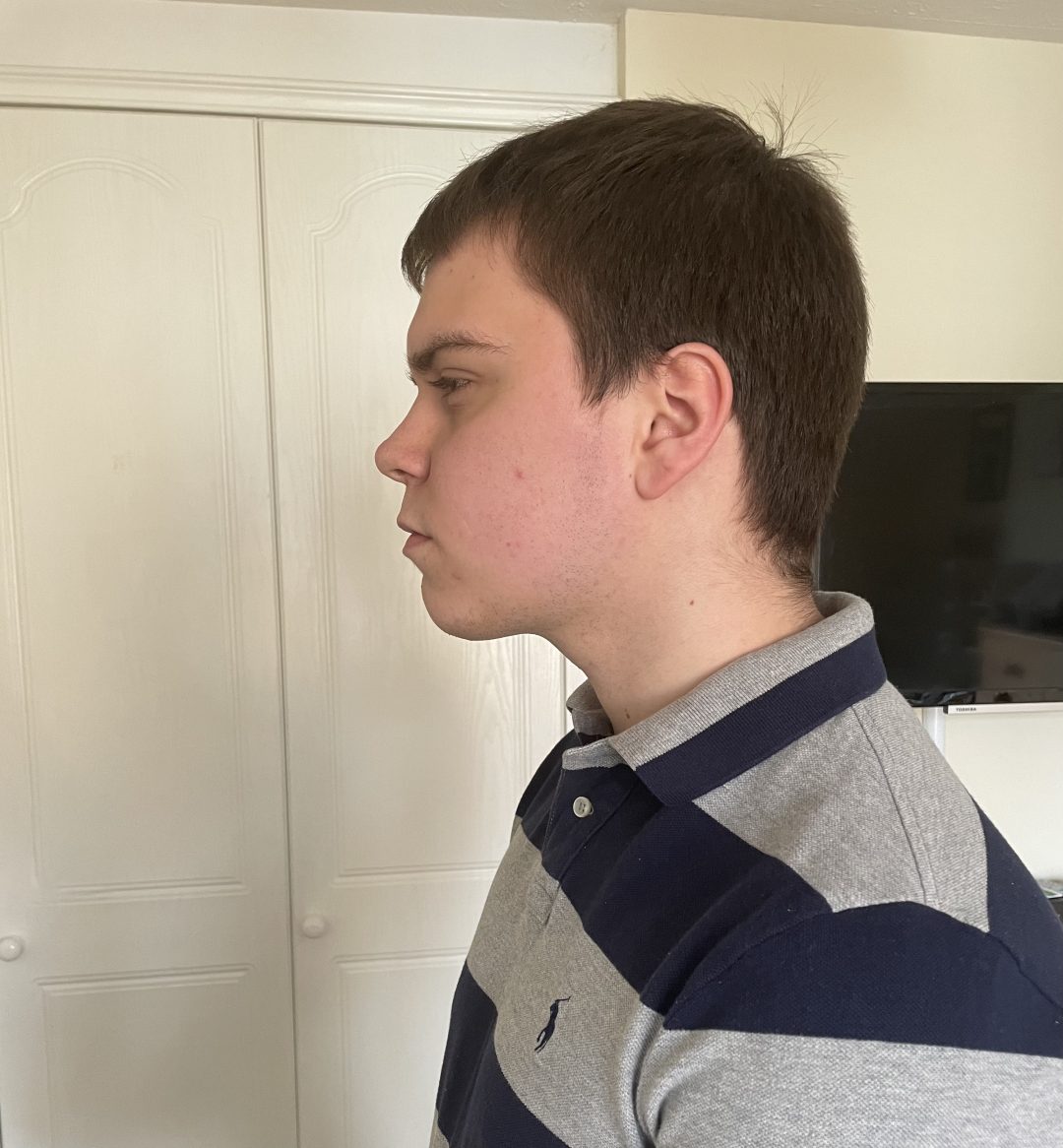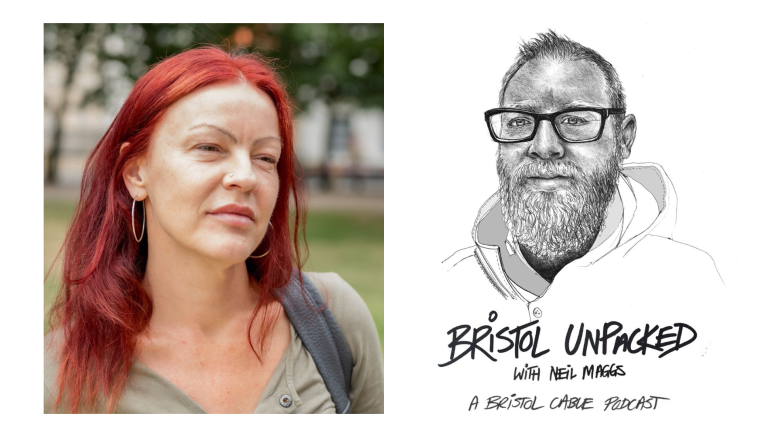Pupils struggle to adapt to school post-lockdown

Illustration: B.M
Sam, 17, has Autism Spectrum Disorder (ASD). People with ASD often have high levels of anxiety, and for Sam, lockdowns exacerbated his poor mental health. He is one of many young people in Bristol whose education has been severely affected by the lockdowns of 2020 and 2021, the impact of which are still being felt now.
Sam was due to start sixth form in 2020 but the national lockdown forced his classes were online. Lockdown itself was actually easier for him, but it hindered his progress at getting better in social situations.

“Before lockdowns I was better at leaving the house and was building confidence,” Sam says. “After lockdown I would have anxiety about going outside.”
He wouldn’t be able to leave the house alone and when face-to-face learning started back up Sam struggled socially. “Not being able to go to school in a big social environment and not being able to get a gauge on the social dynamics in the class when it felt like everyone else knew each other was terrible.” Sam eventually dropped out a few months after starting college.
He is hoping to do two A-levels this year and will do his exams remotely in his own home. Meanwhile he is helping his dad at a car trimming workshop.
Children more ‘stressed, sad, worried and lonely’ than before the pandemic
Schools report the pandemic is still impacting student mental health and in turn attendance, as government statistics released in March show that the south west had the highest national rate of Covid-related pupil absence (3.1%) in the country as of 10 February.
“We have a lot of people who struggle with social anxiety,” says Ollie Benzie, Safeguarding, Attendance and Welfare Lead at specialist school North Star 240°, a specialist school for students with social, emotional and mental health (SEMH) needs. “Being social is a skill and if you’re not practising it then you get worse at it.”
He says there is clear evidence of the impact of the lockdowns of the last two years. “We had a student who had suffered trauma in childhood. It required a lot of one-on-one work from our staff to build their confidence so that they could take part in group learning for the first time in their education. Since the pandemic we haven’t seen that student in school.”
Being social is a skill and if you’re not practising it then you get worse at it
North Star 240° remained open throughout the lockdowns. But their attendance dropped from 80% before the pandemic and then averaged 60% between March and December 2020.
Benzie says that it was only in November that attendance started getting back to how it was pre-pandemic and they are still impacted by students and staff being off with Covid.
Meanwhile Urban Pursuit, an alternative education provider in Bristol working with children at risk of exclusion, has seen an increase in students.
An additional problem is Covid-related staff absence, which has resulted in whole year groups being forced to return to home learning for one day a week. The south west has had the highest rate of covid related staff absences.
Dan Potter, Urban Pursuit’s development lead told the Cable there has been a “definite increase in demand” since Covid. He said children are telling him how difficult it’s been for them since spending time away from school: “They’ve lost the confidence in being around other people.”
In a poll carried out by Barnardo’s last May, more than half of the young people interviewed reported feeling more stressed, worried, sad and lonely than before the pandemic.
Barnardo’s Chief Executive Javed Khan said: “The pandemic and repeated lockdowns have been hugely traumatic for children, with months away from school, separation from friends and relatives, anxiety about the virus and financial pressures at home taking a serious toll on their mental health.”
The situation now appears to be getting worse with rising rates of infections and once again many children spending time away from school. There are still high numbers of Covid cases in Bristol. As of 31 March there were 1,089 cases per 100,000 with the council warning that the infection rate remains “extremely high.”
All schools now provide a ‘blended’ approach to teaching where students have become used to having a combination of teaching in school and online learning at home. This has had to continue because of continued staff and student absences as a result of Covid. Headteachers have had to radically change the way schools are organised to accommodate for this.
The ongoing worry for many teachers is the change in teaching culture could lead to more absences and more mental health issues for years to come. Benzie at North Star 240° says: “There is a real danger that the move towards home learning could reinforce the idea that it’s ok to stay at home.”
We’re living in a time when the education system is facing its biggest challenge in living memory and needs to adapt accordingly. As Ollie puts it: “Finding a system that is able to meet the needs of all students, whatever their circumstances or barriers, is more important than ever. Let’s hope this chance is not wasted.”












Report a comment. Comments are moderated according to our Comment Policy.
thanks alot of information
Education has never been able to meet the needs of all students- it does a best fit for the most students it can. It has to- and if you regularly look after 30 kids with a lot of need diversity in one room then you know why. Post covid is a chance to re-look at the pattern and parameters of education and re-consider what really helps all children flourish.